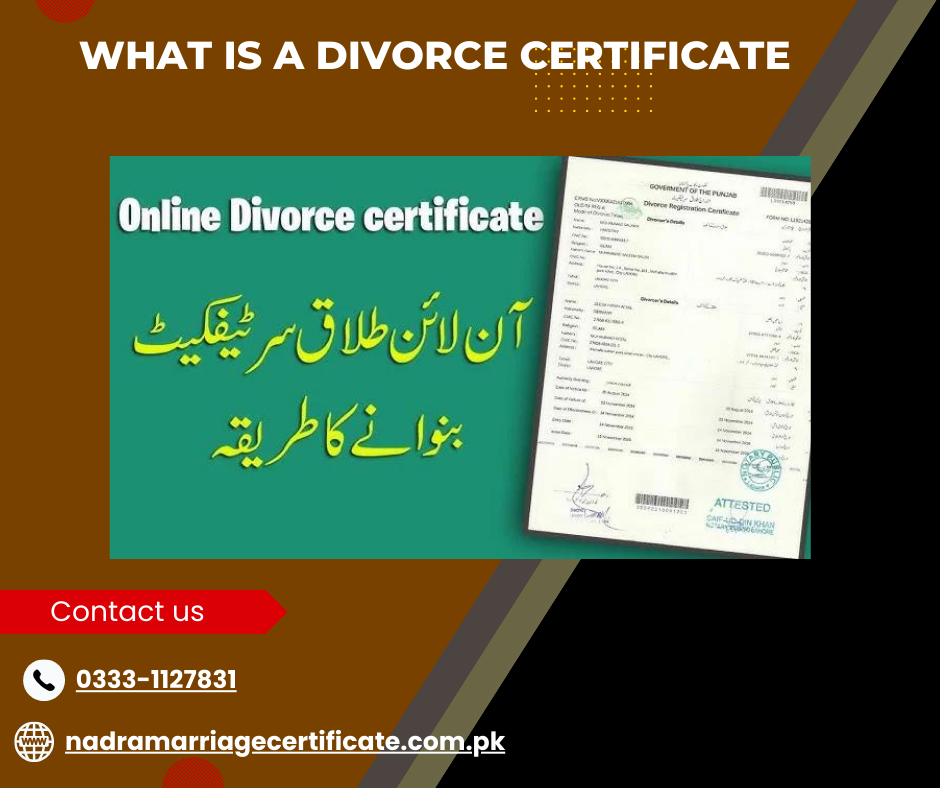What is a Divorce Certificate
Understanding: Death Certificates
Death certificates are official documents issued by governmental authorities that certify the death of an individual. They serve as legal proof of death and provide essential information about the deceased.
Purpose and Importance:
- Death certificates play a crucial role in various administrative, legal, and financial processes. They must settle estates, claim life insurance benefits, and facilitate burial or cremation arrangements.
Information Included:
- A typical death certificate contains vital information about the deceased, including their full name, date and place of birth, date and place of death, cause of death, and details of the attending physician or coroner.
Legal Requirements:
- In most jurisdictions, obtaining a death certificate is a legal requirement following the death of an individual. It is usually issued by the vital records office or department of health in the jurisdiction where the death occurred.
Obtaining a Death Certificate:
- Family members or designated representatives can usually apply for a death certificate from the relevant authority. The process typically involves submitting a formal application along with supporting documentation and payment of any applicable fees.
Types of Death Certificates:
- There are different types of death certificates, including standard death certificates issued for legal purposes and informational death certificates issued for statistical or genealogical purposes.
Confidentiality and Security:
- Death certificates contain sensitive personal information and are treated with strict confidentiality. They are given with security features to prevent fraud and tampering.

Importance in Estate Settlement:
- Death certificates are essential for the settlement of the deceased’s estate. Executors or administrators of the estate use them to prove the death of the deceased and initiate the probate process.
Role in Legal Proceedings:
- Death certificates may be required in various legal proceedings, such as disputes over inheritance, pension claims, or wrongful death lawsuits. They provide official documentation of the deceased’s passing., death certificates serve as vital documents that provide official confirmation of an individual’s death. They are essential for legal, administrative, and financial purposes, ensuring that the affairs of the deceased are properly handled and resolved.
. Variations in Death Certificate Formats:
- Depending on the jurisdiction, death certificate formats may vary slightly, but they generally contain the same essential information. Understanding these variations can help individuals navigate the process of obtaining death certificates in different regions.
Role in Public Health Surveillance:
- Death certificates also play a crucial role in public health surveillance. They provide valuable data for tracking mortality trends, identifying causes of death, and implementing public health interventions to address emerging health threats.
Documentation for Social Security Benefits:
- Death certificates are often required when applying for Social Security survivor benefits. They serve as proof of the deceased’s passing and may be necessary to establish eligibility for benefits such as survivor’s pensions or lump-sum death payments.
Verification of Identity:
- In cases where identity verification is necessary, such as applying for passports or settling financial accounts, death certificates may be requested as supporting documentation to confirm the deceased individual’s identity.
Facilitating Closure and Bereavement Support:
- Beyond their legal and administrative functions, death certificates also serve a crucial role in facilitating closure for surviving family members and loved ones. Having official documentation of the death can help validate the grieving process and access bereavement support services.
Timely Issuance and Processing:
- Prompt issuance and processing of death certificates are essential to expedite various post-death arrangements, including funeral arrangements, estate settlement procedures, and insurance claims processing. Efficient handling of death certificate applications can help alleviate logistical burdens during a difficult time.

Legalization and Apostille Services:
- In cases where death certificates need to be used abroad, additional steps such as legalization or apostille may be required to authenticate the document for use in foreign jurisdictions. Familiarizing oneself with these processes can facilitate international document exchange and legal recognition.
Ensuring Accuracy and Completeness:
- It’s essential to ensure that death certificates are accurate and complete, as errors or omissions could lead to complications in subsequent legal or administrative proceedings. Verifying the accuracy of information provided on death certificates can help avoid potential issues down the line.
Availability of Electronic Death Registration Systems:
- Many jurisdictions have transitioned to electronic death registration systems, allowing for more efficient processing of death certificates and reducing paperwork for applicants. Familiarity with these electronic systems can streamline the process of obtaining death certificates in modernized jurisdictions.
Role in Estate Planning:
- Death certificates are essential components of estate planning, providing documentation of the deceased’s passing and facilitating the distribution of assets according to the terms of their will or applicable intestacy laws.
Requirement for Probate Proceedings:
- In probate proceedings, death certificates are often required to initiate the legal process of administering the deceased’s estate. Executors or administrators must provide certified copies of the death certificate to the probate court as part of the probate application.
Closure for Financial Institutions:
- Financial institutions may request death certificates when closing or transferring accounts held by the deceased. Proof of death is necessary to prevent unauthorized access to accounts and ensure the proper distribution of funds to beneficiaries or heirs.
Documentation for Life Insurance Claims:
- Life insurance companies typically require a death certificate as proof of death when processing insurance claims. Beneficiaries must submit a certified copy of the death certificate to the insurer to initiate the claims process and receive the policy proceeds.
Support for Pension and Retirement Benefits:
- Death certificates may be necessary to claim pension or retirement benefits on behalf of the deceased. Surviving spouses or dependents may need to provide a death certificate to the pension administrator or retirement plan provider to qualify for survivor benefits.

Closure of Legal and Financial Accounts:
- Following an individual’s death, their legal and financial accounts, such as credit cards, loans, and investment accounts, must be closed or transferred. Death certificates are required to initiate these processes and finalize the deceased’s affairs.
Proof of Mortality in Legal Proceedings:
- In certain legal proceedings, such as lawsuits involving wrongful death claims or disputes over inheritance, death certificates serve as evidence of the deceased’s passing. They may be submitted as part of the legal documentation to support the claims or arguments presented in court.
Recording Vital Statistics and Demographics:
- Death certificates contribute to the compilation of vital statistics and demographic data, providing valuable information for research, public health planning, and policy development. Accurate and comprehensive death records aid in understanding mortality patterns and trends over time.
Honoring Final Wishes and Religious Customs:
- Death certificates help ensure that the deceased’s final wishes and religious customs are respected and honored. They may be required to arrange funeral or burial services according to the deceased’s preferences and cultural traditions.
Death Certificate: Significance
In conclusion, death certificates serve myriad purposes in the aftermath of an individual’s passing, from facilitating legal and financial processes to providing closure for surviving family members and supporting public health initiatives. Understanding their significance and ensuring timely issuance and accuracy is essential for navigating the complexities of end-of-life arrangements and administration.
